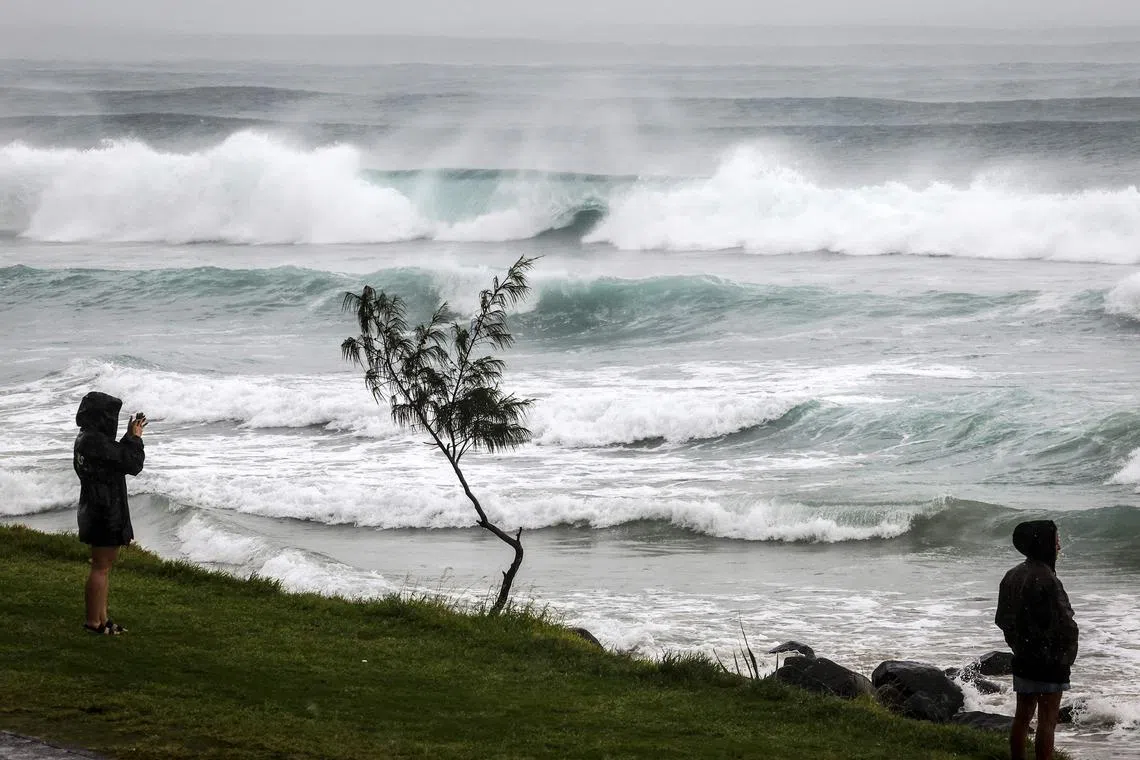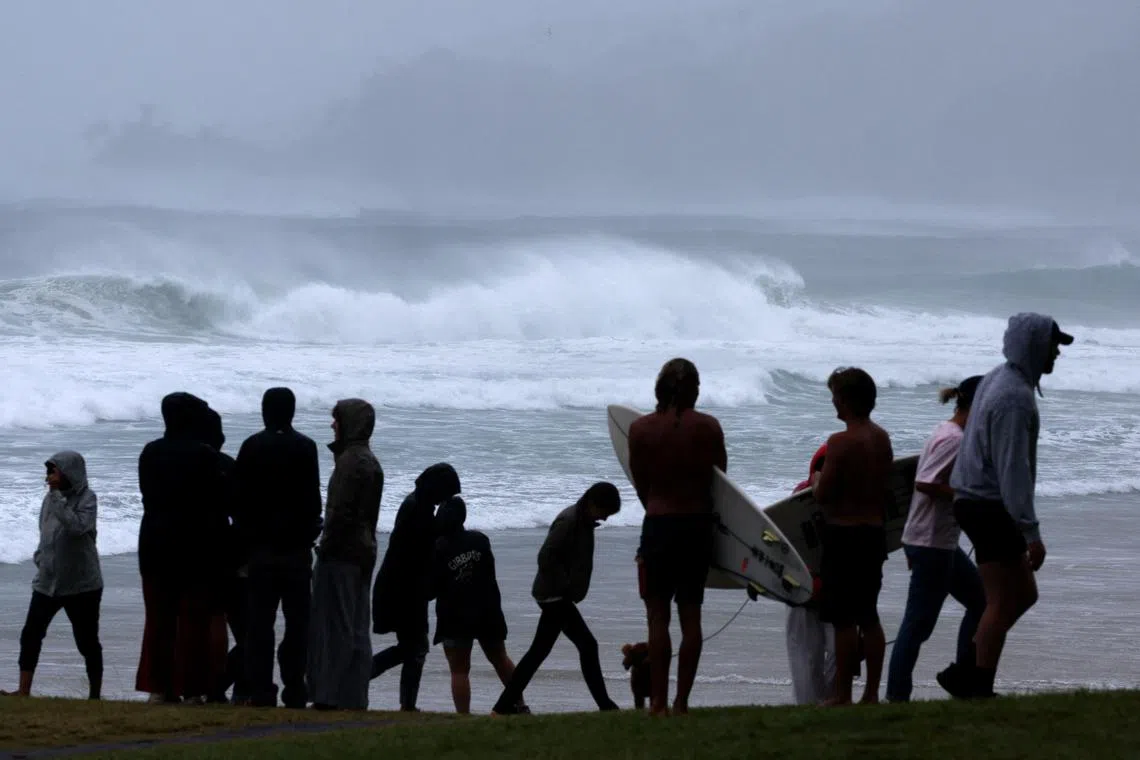Australia readies as cyclone veers towards eastern coast, thousands of homes at risk of flood
Sign up now: Get insights on Asia's fast-moving developments

Residents watching massive waves stirred by Tropical Cyclone Alfred at Byron Bay’s Main Beach, Australia, on March 5.
PHOTO: AFP
BYRON BAY, Australia – A rare tropical cyclone veered towards Australia’s densely populated eastern coast on March 5, sparking emergency warnings, closing hundreds of schools, and threatening to flood thousands of homes.
Tropical Cyclone Alfred would strike on the morning of March 7 near bustling Brisbane city, forecasters said, the first typhoon to hit the region in more than 50 years.
Flooding rains, destructive winds and violent waves were expected to batter a densely populated 300km stretch of coastline straddling the border of Queensland state and New South Wales.
Almost 20,000 homes in Brisbane city alone are at risk of being inundated, according to city council modelling.
As thrill-seeking surfers paddled out to catch 5m swells stirred up by the storm, other people were filling sandbags or getting ready to flee to higher ground.
“We’re just making sure that everything is tied down,” said Mr Kim Hollow from the Horizons Motel an hour’s drive south of Brisbane’s business district.
“The supermarket shelves have been pretty much stripped bare. You can’t buy a candle to save yourself,” he told AFP.
“I must admit my daughter has been on my back a bit. We’ll only leave if we’re told to evacuate. If it’s safe to stay, we’ll stay.”

Residents, including surfers, were at Byron Bay, Australia, sizing up the supercharged waves crashing on the shore.
PHOTO: AFP
‘Angry ocean’
Surfers huddled on the banks at Byron Bay to size up the supercharged waves crashing on the shore in clouds of spray.
“Surfers rarely, if ever, get a chance to ride such big waves in Byron Bay,” said local Jim Regan.
“With the wind and pelting rain and cyclone Alfred swirling offshore, you’ve really got to be dedicated to paddle into such an angry ocean,” he told AFP.
More than 700 schools across Queensland and the flood-prone northern rivers region of New South Wales will close from March 6 onwards, education department officials said.
Major airlines Qantas and Virgin have cancelled a string of flights, while the Gold Coast’s international airport will shut down completely in the afternoon of March 5.
Australia’s Bureau of Meteorology said Tropical Cyclone Alfred was likely to hit land in the early hours of March 7 morning.
The storm front made “an abrupt U-turn” towards the mainland after earlier forecasts showed it would peter out at sea, the weather bureau said.
It would bring “destructive wind gusts” of up to 155kmh in some places, the bureau added.
Dangerous ‘storm tide’
There was a chance it would make landfall at high tide, said forecasters, creating a “dangerous storm tide” with powerful waves.
“We’re now into the phase where it’s hours rather than days, but you’ve still got time,” Queensland Premier David Crisafulli told a news conference in Brisbane.
“You’ve got time to plan an evacuation route if you’re in one of those zones, you’ve got time to clean up your home and make sure you’ve got the essentials.”
While cyclones are common in the warm tropical waters lapping Australia’s northern flank, it is rarer for them to form in cooler waters further south.
Tropical Cyclone Alfred would be the first to make landfall in that part of Australia since 1974, the Bureau of Meteorology said.
“This is perhaps an indication that due to global warming, the reach of tropical cyclones is extending further than the tropics, requiring preparedness in areas where cyclones are unprecedented,” said Associate Professor Iftekhar Ahmed from the University of Newcastle.
Two season-opening Australian rules football matches – the country’s most popular spectator sport – slated for March 6 have been postponed because of the storm.
The Gold Coast Festival of Golf and Australia’s largest triathlon have also been called off.
Researchers have repeatedly warned that climate change amplifies the risk of natural disasters such as bushfires, floods and cyclones. AFP


